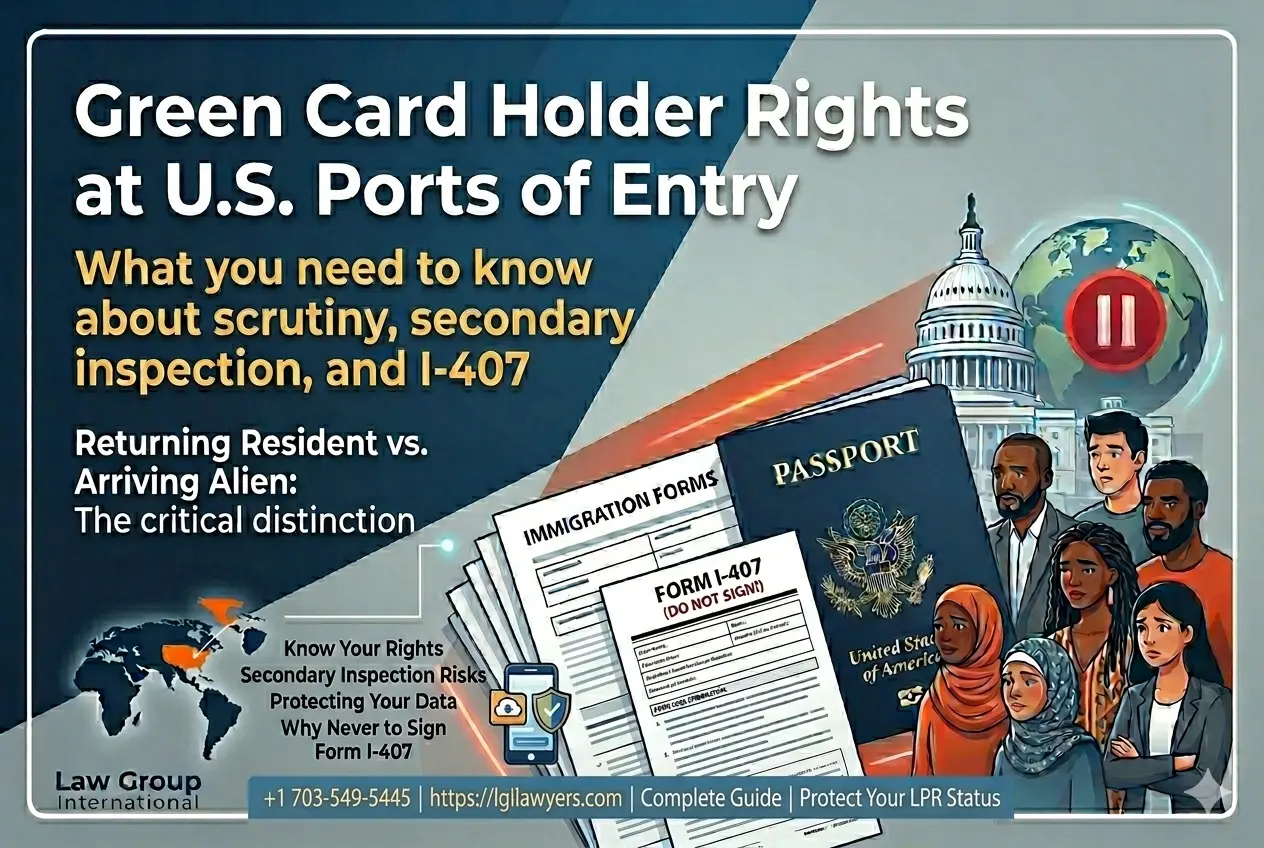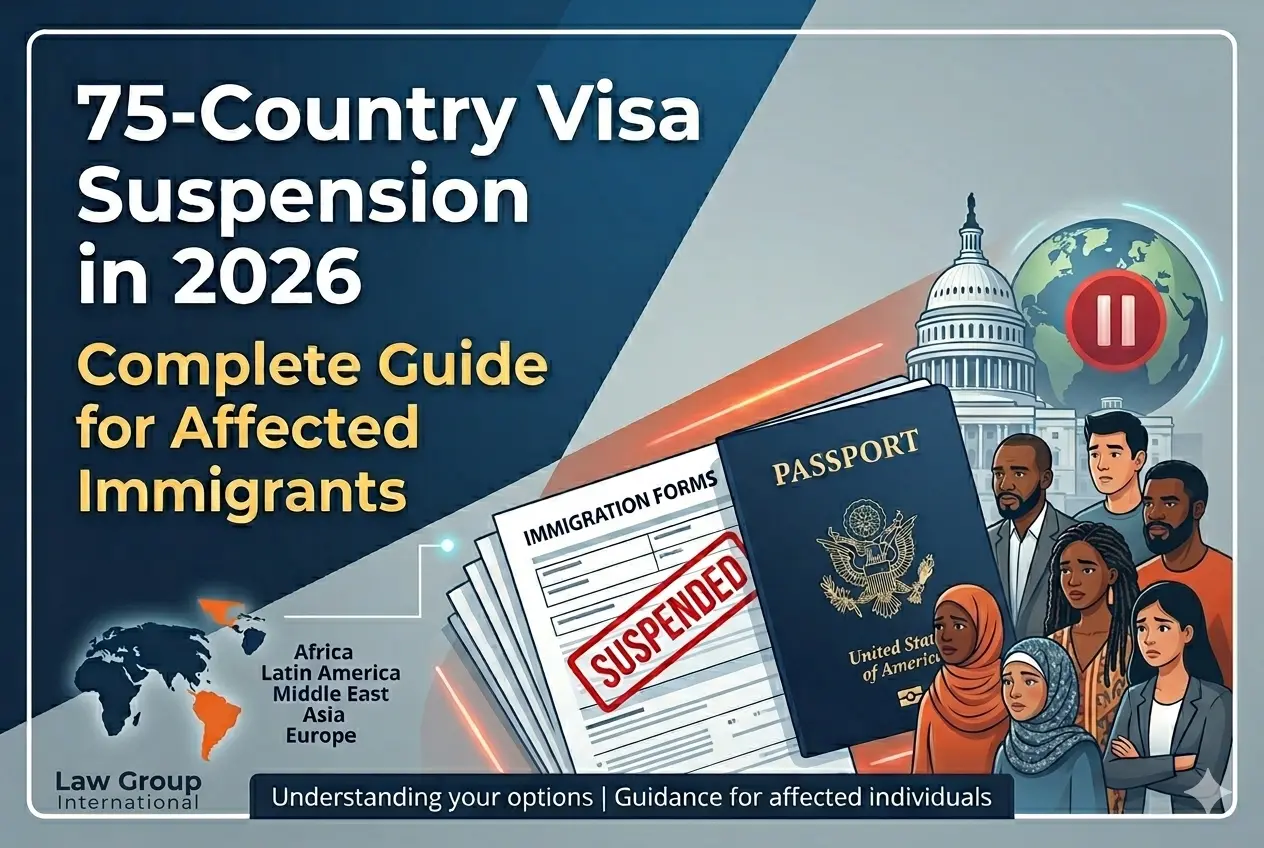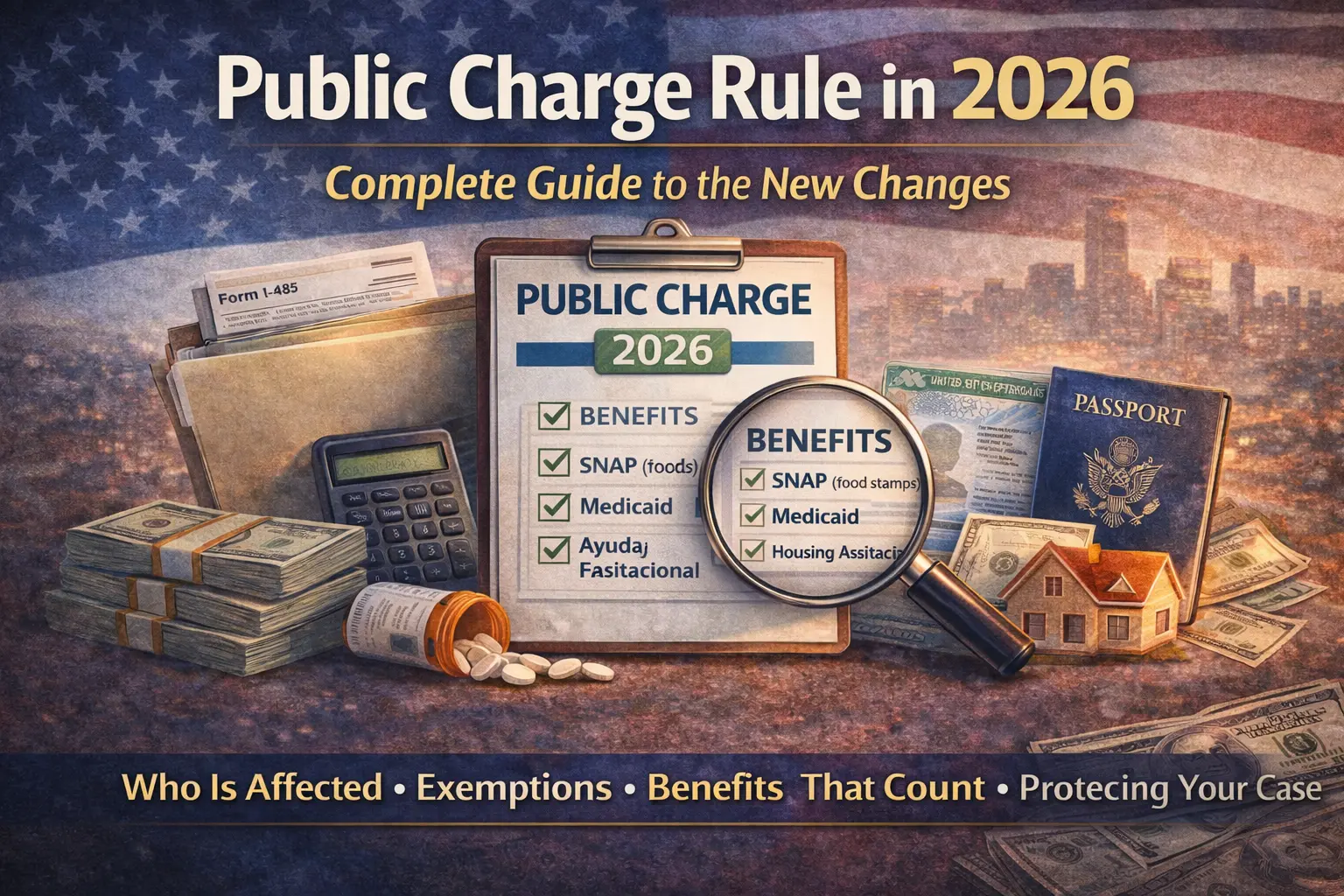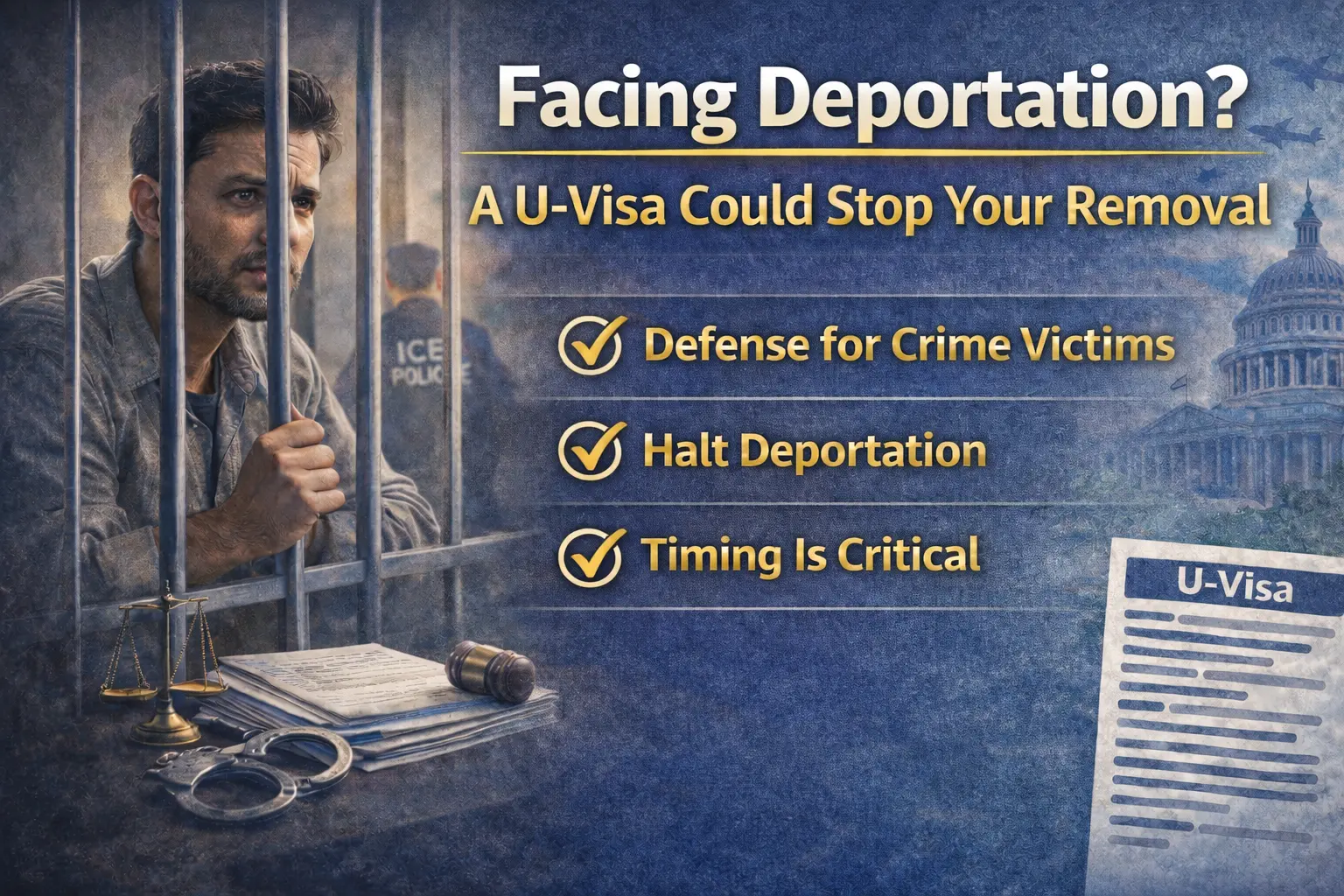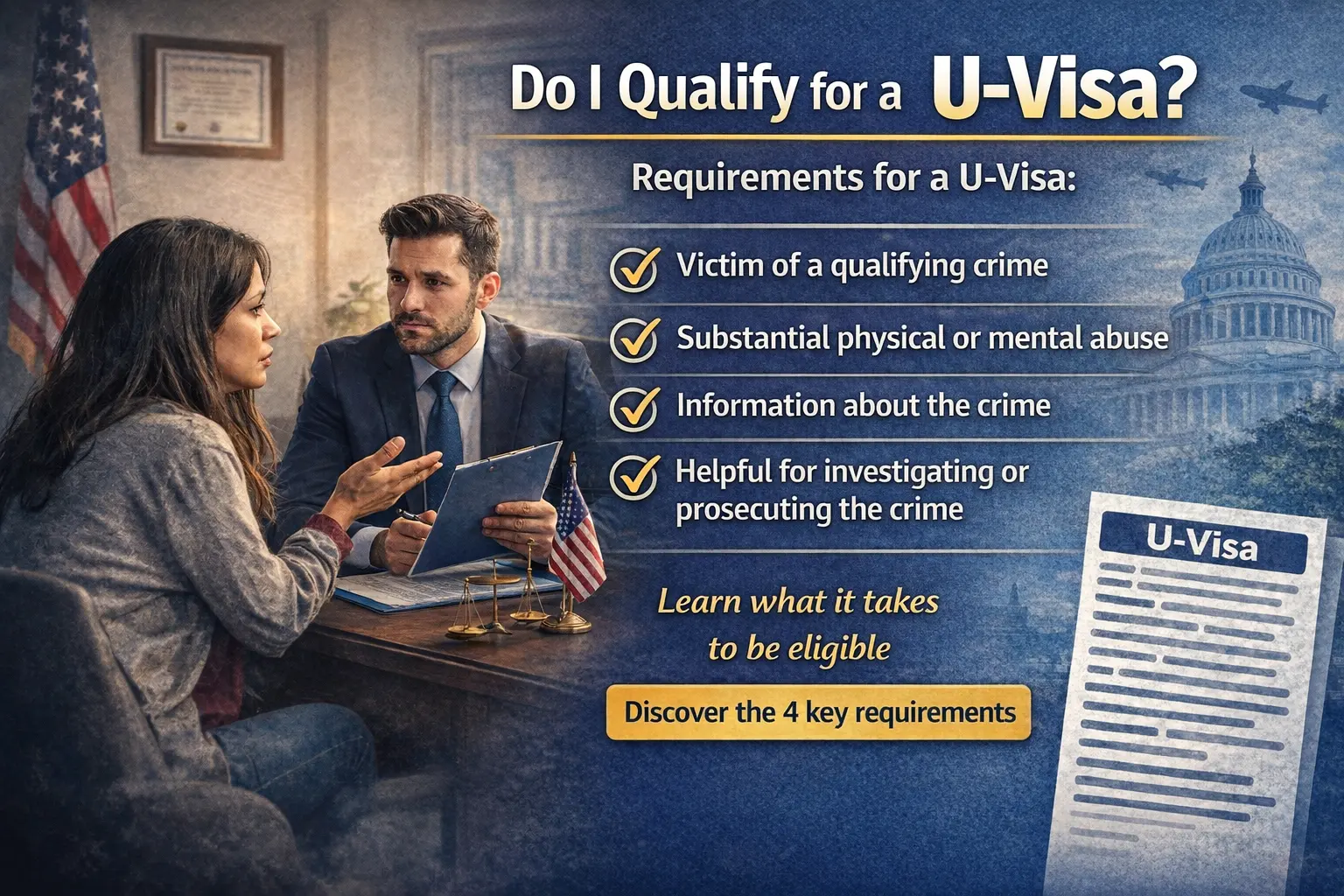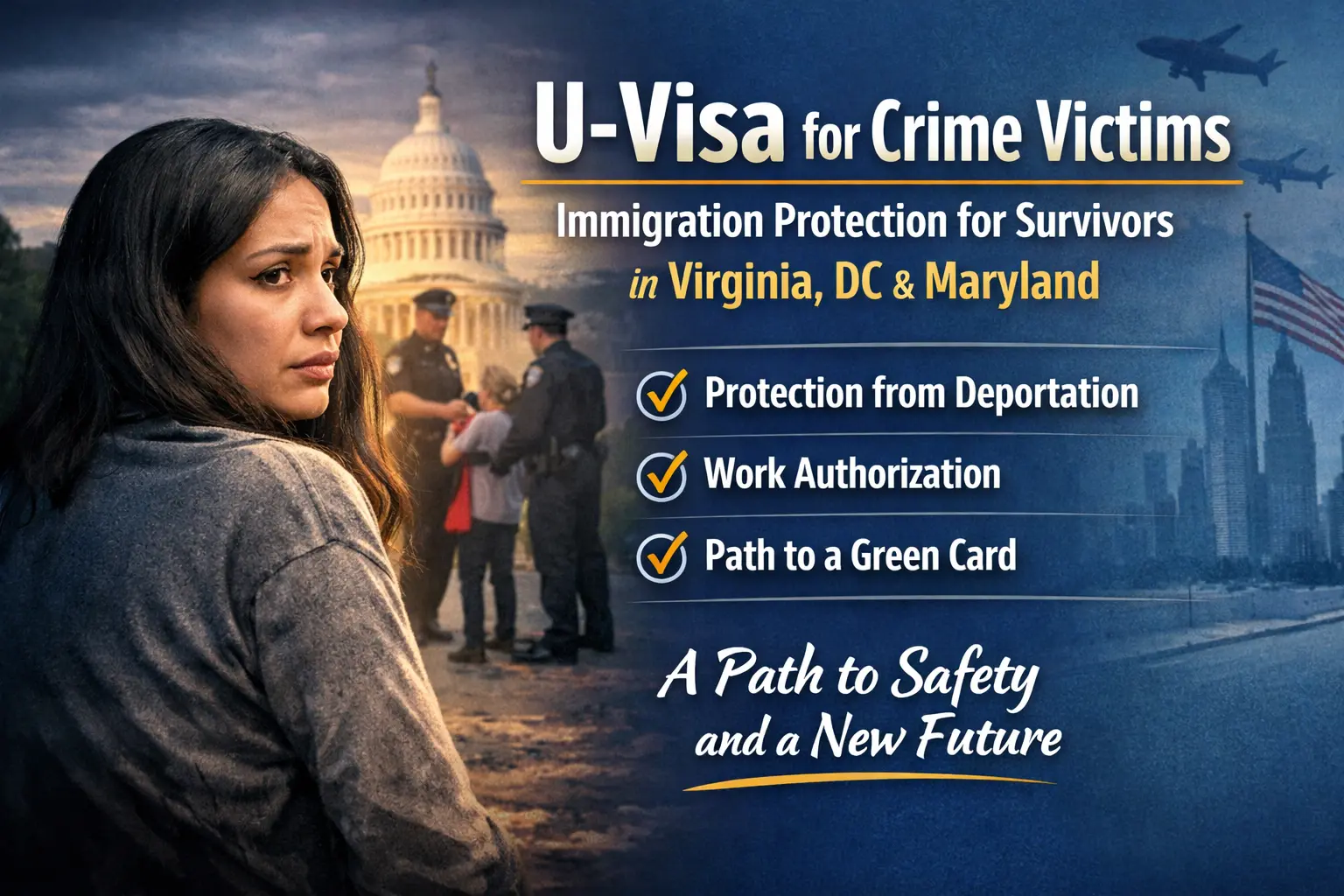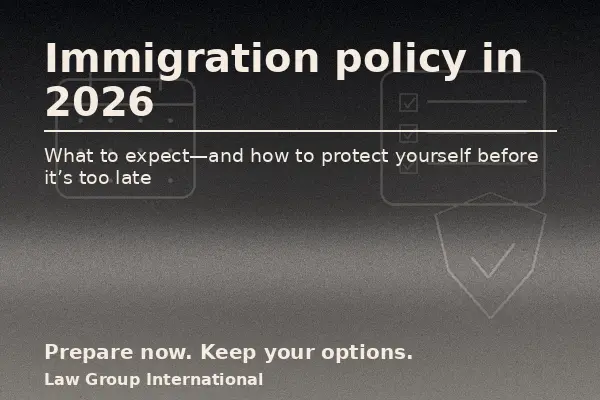EB-1 vs EB-2 vs EB-3: Which Path Fits Your Profile?
When it comes to employment-based green cards, choosing the right category is a crucial first step. Each path, EB-1, EB-2, and EB-3, offers unique benefits, evidence requirements, and timelines. At Law Group International, we help professionals, researchers, and skilled workers identify the best route to U.S. permanent residency based on their background and career goals.
Overview of Employment-Based Categories
Key Differences
- EB-1: For individuals with extraordinary ability, outstanding professors/researchers, or multinational executives.
- EB-2: For professionals with advanced degrees or individuals with exceptional ability (including National Interest Waivers).
- EB-3: For skilled workers, professionals, and other workers with at least two years of experience or relevant education.
Benefits & Drawbacks
- EB-1
- Pros: No PERM required, premium processing available, typically current priority dates.
- Cons: Very high evidentiary standards.
- EB-2
- Pros: Suitable for advanced degree holders, NIW available.
- Cons: PERM usually required unless filing NIW.
- EB-3
- Pros: Ideal for workers with bachelor’s degrees or vocational training.
- Cons: PERM mandatory, longer backlogs in most countries.
EB-1 Category
Ideal Candidates
- Scientists, researchers, tech innovators, artists, athletes, senior executives.
- Must show sustained acclaim or significant managerial roles.
Pros & Cons
Pros:
- Skip labor certification (PERM)
- Eligible for premium processing
- Shorter visa wait times
Cons:
- High standard of proof
Tip: If you have national or international recognition, EB-1 could be your fast track.
EB-2 Category
Advanced Degree & Exceptional Ability
- Requires U.S. master’s degree or foreign equivalent (or bachelor’s + 5 years experience).
- Exceptional ability requires meeting 3 of 6 USCIS criteria.
National Interest Waiver Option
- Waives job offer and PERM.
- Must meet the Dhanasar test:
- Substantial merit and national importance
- Well-positioned to advance endeavor
- Beneficial to waive job/labor requirements
Who should consider NIW? Professionals in public health, national security, STEM research, and education.
EB-3 Category
Skilled Workers & Professionals
- For jobs requiring at least 2 years of experience or U.S. bachelor’s degree.
- Common roles: Nurses, engineers, tradespeople, IT professionals.
Labor Certification Process
- Prevailing wage request
- Job advertising
- Filing ETA-9089 with DOL
Timeline: 8–12 months on average before filing Form I-140.
Comparative Table
| Category | Eligibility | Evidence Level | PERM Required | Premium Processing | Backlog Risk |
| EB-1 | Extraordinary ability or multinational manager | Very High | No | Yes | Low |
| EB-2 | Advanced degree or exceptional ability | Moderate-High | Yes (unless NIW) | Yes | Medium |
| EB-3 | Skilled worker or bachelor’s degree | Moderate | Yes | Yes | High |
How to Choose Your Path
Key Decision Questions
- Do you have a major national/international award? Consider EB-1
- Do you hold a U.S. master’s or equivalent degree? EB-2 may fit
- Are you applying with a sponsoring employer and have 2+ years experience? EB-3 is likely
When to Consult an EB-1 Green Card Attorney
- If you’re unsure whether your achievements meet EB-1 or NIW standards
- If your employer isn’t familiar with PERM or sponsorship
- If your immigration situation is time-sensitive
Book your EB-1 strategy session
Next Steps with Law Group International
At Law Group International, we assist individuals and businesses with employment-based green card applications across all categories. From PERM to I-140 filing and final green card issuance, our team offers expert guidance every step of the way.
Still deciding which path fits best? Contact us today for a personalized evaluation and take the next step toward U.S. permanent residency with confidence.
Explore More Immigration Topics
Habeas Corpus and Immigration
March 2, 2026
Green Card Holder Rights at U.S. Ports of Entry
February 28, 2026
75-Country Visa Suspension
February 27, 2026
Public Charge Rule in 2026
February 19, 2026
Know Your Rights with ICE: A Complete Guide
February 17, 2026
VAWA Immigration: Protection for Victims of Domestic Violence
January 28, 2026
U-Visa and Deportation: How This Visa Can Save Your Case
January 19, 2026
U-Visa requirements 2026: Complete eligibility guide
January 13, 2026
Immigration Policy in 2026
January 1, 2026

